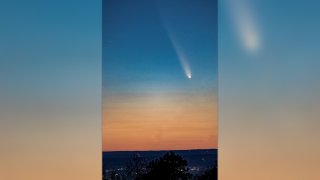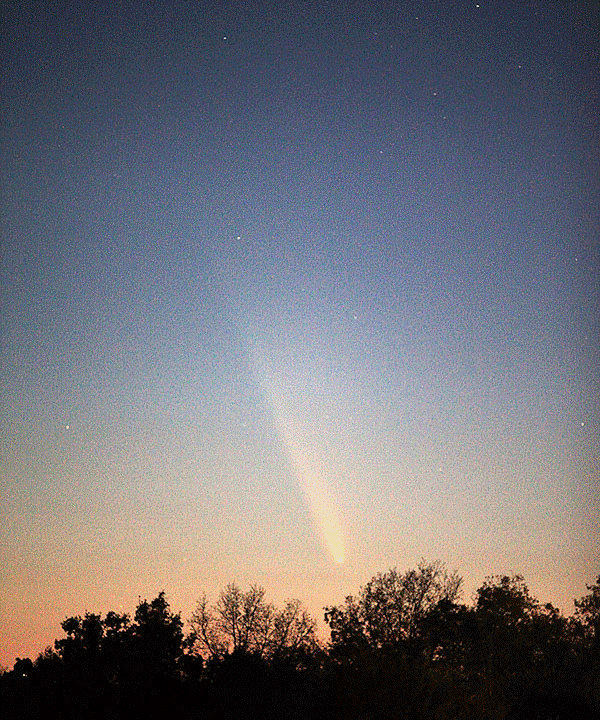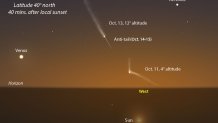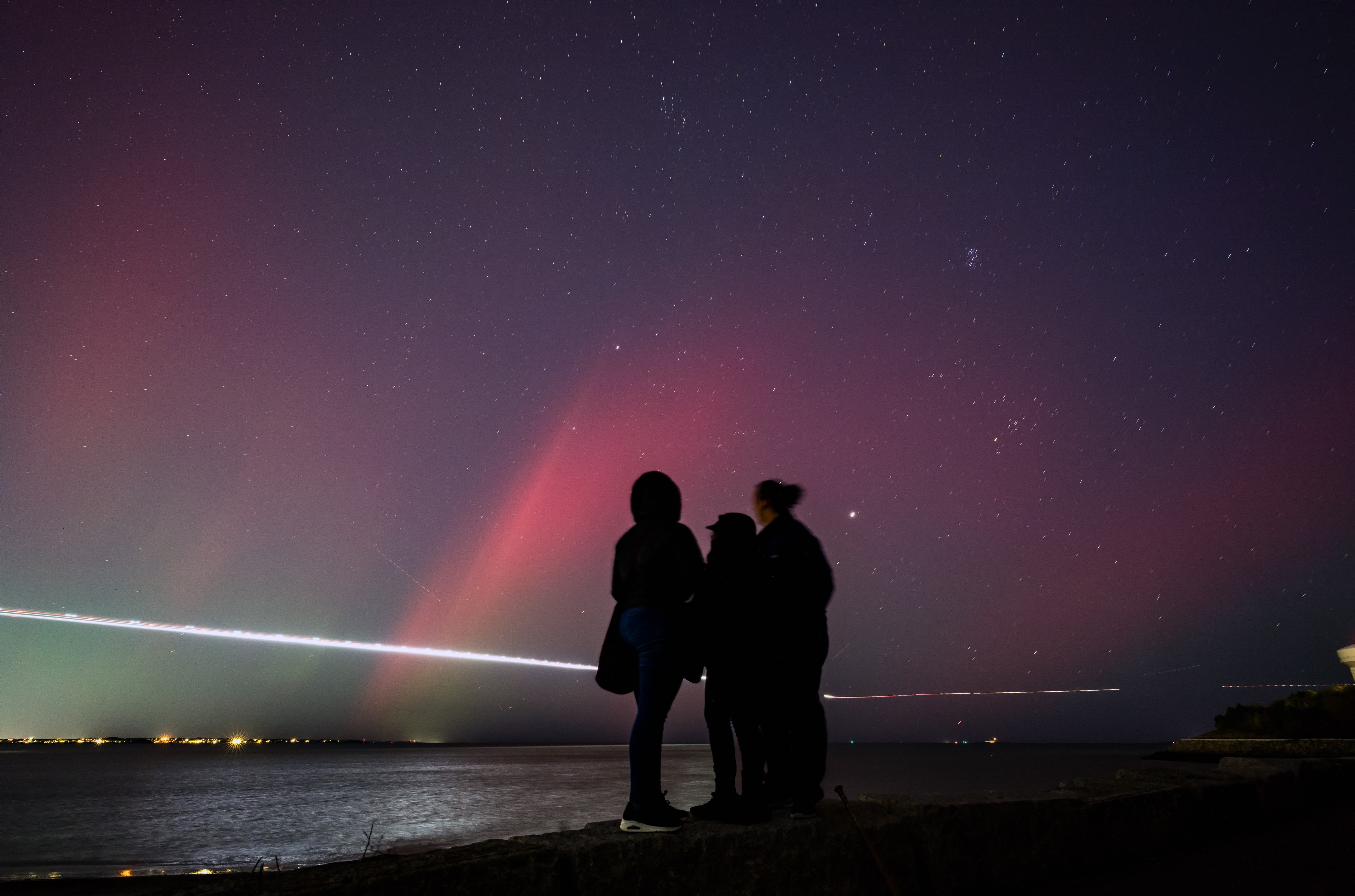
The celestial skies have been dazzling over the past week. First it was the aurora, and now it’s a comet passing near the sun. While the viewing may have been best around sunset on Saturday, there is still a small window to view Comet Tsuchinshan-Atlas (C/2023 A3) in the coming days.

WATCH ANYTIME FOR FREE
Stream NBC10 Boston news for free, 24/7, wherever you are. |

This newly discovered comet will be seen close to the horizon around sunset in the coming days. Its dusty tail will gradually turn more westerly as the days progress and become increasingly hard to see as it fades in the solar glare.
Get updates on what's happening in Boston to your inbox. Sign up for our News Headlines newsletter.

In addition, the increasing moonlight after Oct. 15 will make this comet hard to see with the naked eye. Astronomers use the magnitude scale for gauging the brightness of objects viewed from Earth, with lower numbers indicating brighter objects and higher numbers lending themselves to binoculars or telescopes. For example, the Sun is -27 magnitude, while objects visible to the naked eye come in at 6. Comet Tsuchinshan was -1 on Saturday but will progress to 0 tonight, 2.5 by the 17th, and 4 by the 22nd. While technically visible, it’s best seen with binoculars away from any city lights.
This will be the last chance to view this particular comet - it won't return to the area for another 80,000 years.
Happy comet hunting!



